Plot Synopsis
"The Happy Seven in Changan" tells the story of a dilapidated mansion burdened with heavy debt, where three struggling young girls from different hometowns and four distinct brothers with their own grievances come together to create a small yet brilliant tale of ordinary "struggling in the city" life.
Xie Quanjia, a rural girl from a small town who comes to Changan City in search of her father, overnight becomes the only daughter of Li Tiandi, the wealthy man of Changan. However, she unexpectedly inherits not a fortune but millions of debts. When faced with despair, she is joined at the Li mansion by Guigongzi Shangguan Guchuan, a nobleman inpursuit of debt repayment, Fan Zhongju, a scholar who came to the capital for the imperial examination and is looking for aplace to stay, and Liu Langqi, a young hero who has come to repay a debt to Li Tiandi. With her father gone and debts unpaid, and under thepressure of creditors, Xie Quanjia accommodates everyone in the mansion while renting out vacant rooms to a runawayprincess and her servants from the WesteRegions, as well as Guo Dongli, a shopkeeper who works at a restaurant, to ease the burden of debt. From then on, living together in a shared space, each of them devotes all their energy to making a name for themselves in Changan. They chase their dreams while dealing with various visitors to the mansion, leading a tumultuous yet joyful life.
Where to Watch "The Happy Seven in Chang'an"
WeTV (Subscription)TencentVideo (Subscription)Viki (Subscription)TencentVideo Free (sub)Episodes Recap
- 1-5
- 6-10
- 11-15
- 16-20
- 21-24
Episode 1 : Li Tiandi faked his own death to avoid debts.
Episode 2 : Xin Tai Ruan Yao made Gu Chuan's heart move toward Xie Quan Jia.
Episode 3 : Shang Guan Gu Chuan dressed as a ghost and scared everyone.
Episode 4 : Kawakawa returned to the Li residence.
Episode 5 : Tang, the leader of the Tang Sect, stayed at the Li residence.
Episode 6 : Fan Zhong Ju wholeheartedly completed the novel "Shanhe Jing" (Mountains and Rivers Classic).
Episode 7 : Fan Zhong Ju participated in the imperial examination.
Episode 8 : Gukawa Gang's Xie Quan Jia repaid the loan.
Episode 9 : Contending for the host role of the Mid-Autumn Festival banquet.
Episode 10 : Contending for the hosting rights of the Mid-Autumn Festival banquet.
Episode 11 : Lady Shangguan acted to test the bounds of friendship.
Episode 12 : Shang Guan Gu Chuan tried to take shortcuts in horse trading.
Episode 13 : Ren Shu bumped into her fiancé, Seventeenth Lord.
Episode 14 : Gukawa's attempts to modify the script were repeatedly rejected.
Episode 15 : Secretly arranging a birthday party for Ren Shu.
Episode 16 : A single sentence from Gu Chuan sparked a bloody conflict in the martial world.
Episode 17 : Xie Quan Jia helps her best friend see through the scumbag.
Episode 18 : Liu Lang, a lucky messenger, became popular.
Episode 19 : Arrival of LeTian touches everyone's hearts.
Episode 20 : The Li family members are caught in a storm of suspicion.
Cast & Role
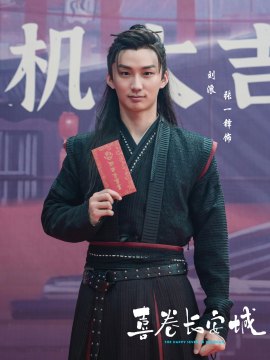
Liu Lang
(Zhang Yi Duo)
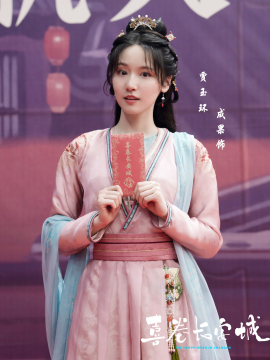
Jia Yu Huan
(Cheng Guo)
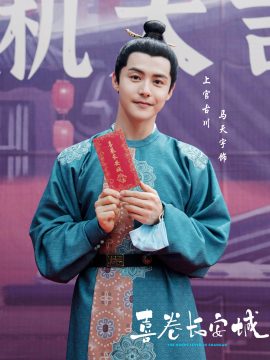
Shang Guan Gu Chuan
(Ma Tian Yu)
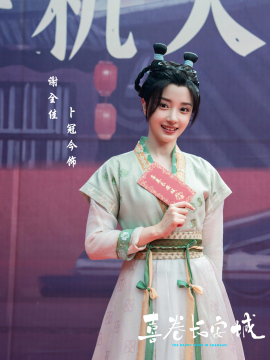
Xie Quan Jia
(Bu Guan Jin)
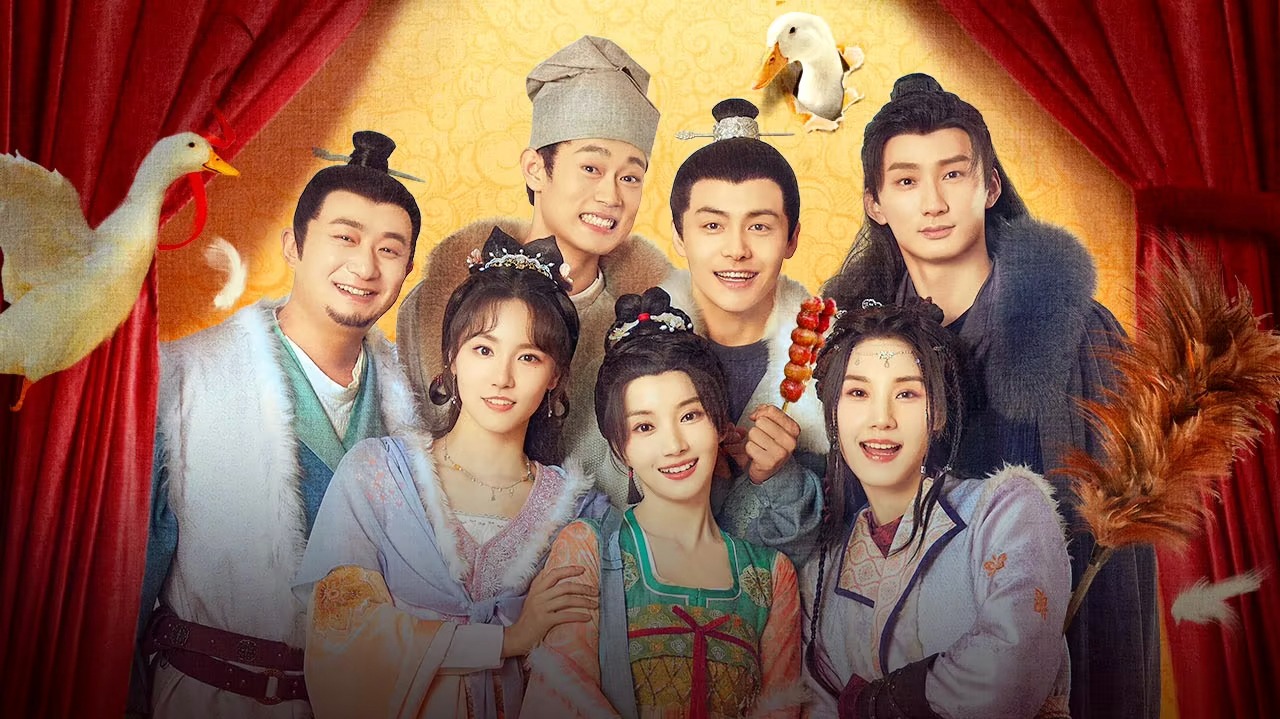

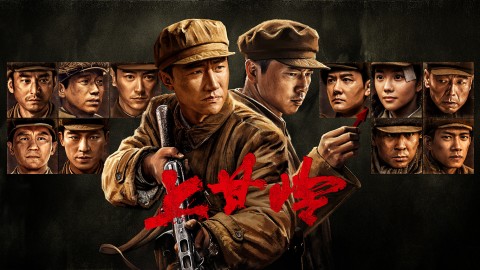
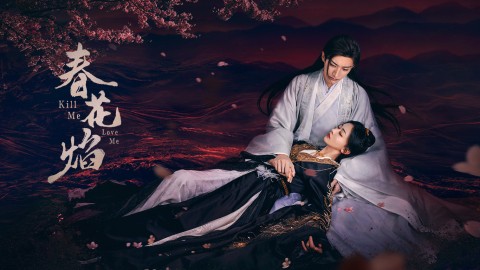
Summary in one sentence: A period ensemble comedy that combines humor and warmth, with both laughter and touching moments. It revolves around the Lin family, depicting the struggles and growth of its resilient and humorous members, creating a heartwarming and healing experience.
Chang Piao Qi Xi and his companions are often faced with setbacks and bad luck, and they all have their flaws, but this also makes them more relatable, like long-lost friends in real life. They are imperfect ordinary people.
What surprised me is that despite being a comedy, it doesn't neglect the details and storytelling. For example, the imitation letter written by Fan Zhong Ju plays a significant role in the plot development.
At the same time, the plot avoids the common pitfall of comedies being too whimsical and arbitrary. It has cause and effect, and is clear and reasonable. It has a touch of absurdity, but it also lays the groundwork and foreshadows future events.
The essential attribute of a comedy is to be "funny," and the most important aspect is the presence of comedic moments and the delivery of punchlines.
In my opinion, this drama achieves that.
The jokes are abundant, and even the characters' names contribute to the humor. Tang Men Liu Lang, Fan Zhong Ju, Xie's family... I consider myself to have a high sense of humor, and I found many moments to laugh at.
The comedy aspect of Xi Juan Chang Le City is undeniably strong. The actors' performances are impressive, which pleasantly surprised me. At first, I was worried that they might overact in this type of comedic genre, but after watching it, I realized I was overthinking.
Their performances are not exaggerated but rather naturally fitting to the characters and the development of the plot.
The characters' personalities are also distinct. There's the enterprising "Ming Deng" Shang Guan Gu Chuan, the adorable Xie family, the eloquent Fan Zhong Ju, the flower protector Tang Men Liu Lang, the mischievous spirit Jia Yu Huan, the superstitious flower lover Seventeen Princess...
Moreover, for those who enjoy shipping couples, you're in luck. This drama features several couples. Personally, I particularly love the bickering yet affectionate relationship between Xie's wife and Shang Guan husband.
Their sweetness is so overwhelming, from misunderstandings to firm resolve, both of them have hearts as soft as cotton candy. Even if their love starts as a pretense, their stubbornness adds an extra layer of depth.
Now let me talk about some small details that I personally adore. First, the visual art design is exquisite. The use of small animations is cute and playful, adding a lighthearted and enjoyable atmosphere that complements the story.
The opening and ending songs are also worth mentioning. I really enjoy the rap and theatrical elements in the ending song. It's joyous, lively, and catchy.
Lastly, I'll share a short poem that embodies the theme of Xi Juan's comedy: Life has its ups and downs, let it win or lose.
There's always a way out, and we can smile in the face of difficulties along the way.